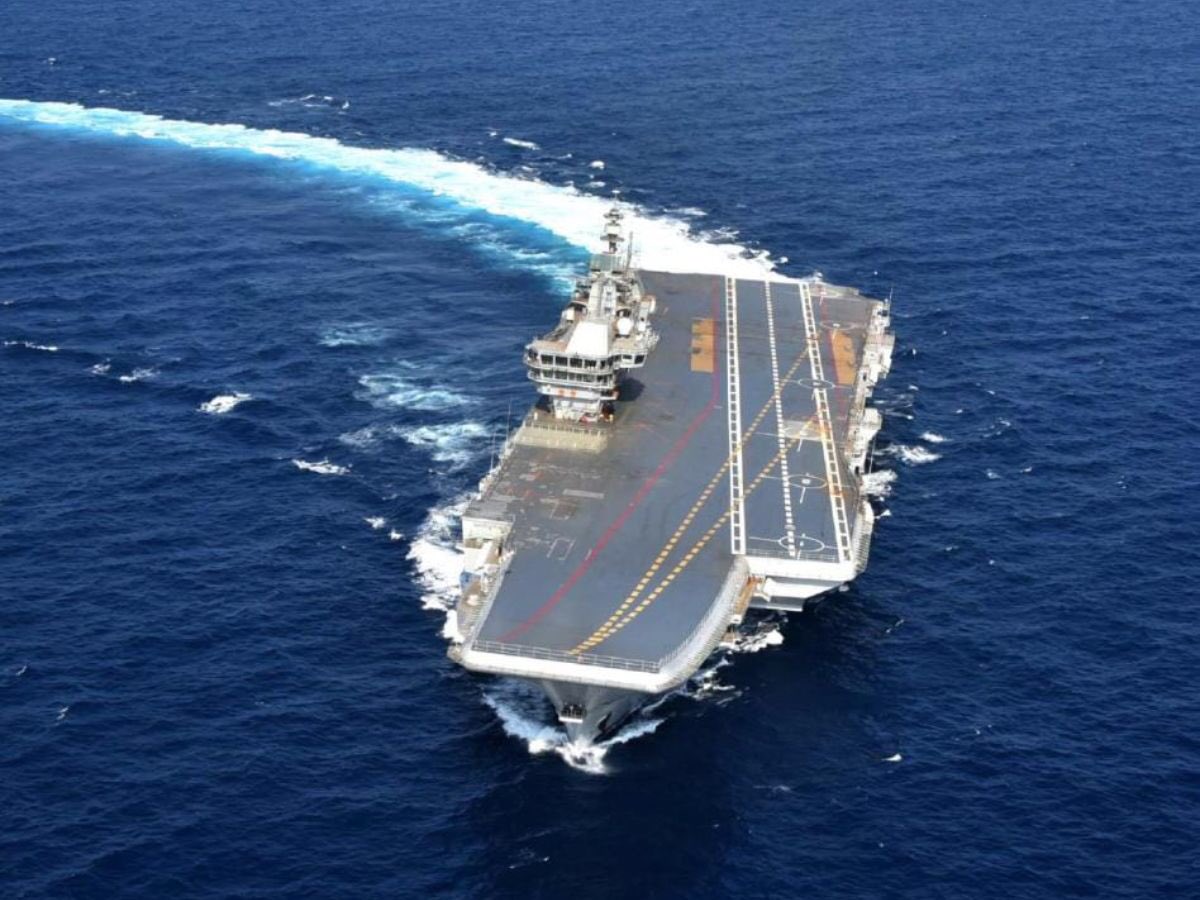The Indian Navy is set to maximise its capacity to dominate large swathes of the Indo-Pacific, especially the Arabian Sea and the Bay of Bengal, as both its aircraft carriers are set to become battle-ready shortly.
While the 45,000 tonne INS Vikramaditya will become fully deployable after the major refit before monsoons roar into India, the bigger made-in-India INS Vikrant will be ready to prowl the waters of the Indo-Pacific after monsoons retreat from the subcontinent.
Aircraft carrier INS Vikramaditya begins sea trials post-refit#IndianNavy pic.twitter.com/OkKngOHGfj
— Insightful Geopolitics (@InsightGL) February 28, 2023
Given the importance of the two carriers to exercise “sea control”—dominate the waters as well as skies within a large arc of their deployment area—the recently concluded naval commanders conference, headed by defence minister Rajnath Singh took stock of the navy’s preparedness.
Significantly, the meeting this week took place aboard the Vikrant, the navy’s pride, and key to its deterrence, when combined with the deployment of nuclear submarines, boarding strategic Submarine Launched Ballistic Missiles (SLBMs). Hindustan Times is reporting that during the course of the conference, a MiG-29 K fighter and Tejas-M were made to land on the freshly minted warship’s deck.
In any conference of this nature, China is the elephant in the room. Given Beijing transparent intent to break through the US imposed island chains, and power and contest its way in India’s backyard, Indian planners are taking no chances.
Right now, a decision on the aircraft to board the INS Vikrant is awaiting finalisation. Two planes have been shortlisted—the naval variant of the French Rafale-M and the F-18 of the United States. Both planes have been tested from the navy’s shore-based facility in Goa. The two will adhere to India’s Atmanirbhar Bharat doctrine, involving transfer of technology and manufacture in India. But maintenance of the Rafales may be cheaper as these fighter jets have been already inducted in the Indian Air Force (IAF). According to HT, the Department of Military Affairs has been handed over a report, based on last year’s trial, pending a final decision by the government.
The modernisation of the Navy is vital as China is racing ahead with weapons and platforms that make PLA-Navy a formidable fighting force. China’s third aircraft carrier Fujian is undergoing sea-trials. The Chinese plan to acquire six aircraft carriers by 2035, to match US naval firepower. The decision is timed with China’s decision to become the world’s biggest economy, knocking out the US from the top of the tree by that year. Besides, the Chinese, who already have anchorage in Djibouti are eyeing a naval presence in Sri Lanka’s Hambantota port as well Gwadar or its thereabouts on the Pakistani coast.
The Chinese are expected to further accelerate their naval ship construction in their bid to militarily takeover Taiwan, though the costs of such an undertaking are risky and can prove prohibitively high, with major political implications on the longevity of the Communist Party of China.
In view of Chinese ambitions, it is critical that the India navy consolidated in the Andaman and Nicobar Islands, especially the 10 degree and 6 degree channels through which global, including Chinese commercial shipping passes en route the strait of Malacca, the channel connecting the Indian Ocean with the South China Sea. Such a leverage is necessary to ease Chinese military pressure on the land borders.
Also Read: Aircraft carrier INS Vikramaditya poised to rejoin Indian Navy fleet after 15-month refit




















